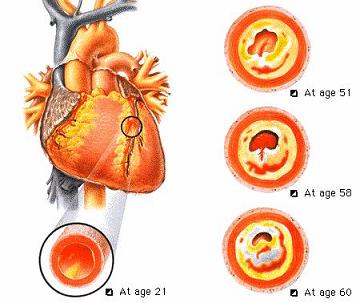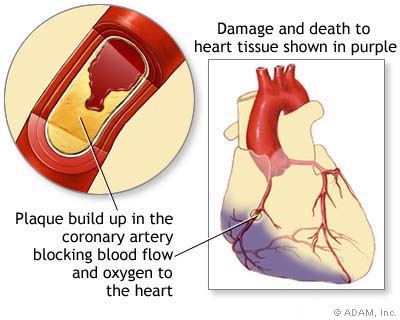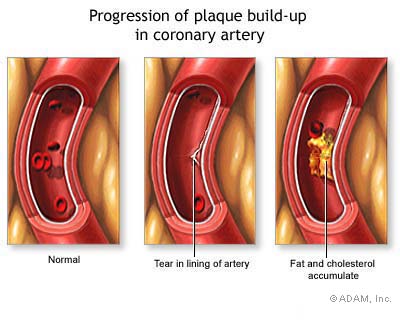Diagnosis and treatment
Injured heart muscle causes abnormal ECG waves. Soon after a patient reaches the hospital, doctors administer an ECG to determine that symptoms result from a heart attack and not some other disorder. Doctors also use certain blood tests to detect a heart attack. But these tests are not useful until a few hours after an attack. Doctors may administer a strong painkilling drug, such as morphine, to relieve the pain of a heart attack. They also use drugs to dissolve clots in the blocked artery or may perform emergency angioplasty or bypass surgery.
After doctors stabilize the condition of a heart attack patient, they admit the person to the hospital and monitor him or her for complications in the intensive care unit. Some hospitals have a specialized intensive care unit called a coronary care unit for heart patients. Two major complications are heart failure and arrhythmia. Heart failure occurs if the heart cannot pump enough blood because of extensive damage to the heart muscle. In most cases, heart failure can be successfully treated. In arrhythmia, the heart's electrical system produces an abnormal pattern of beats. Most arrhythmias can be readily treated, but a type called ventricular fibrillation can cause sudden death. Ventricular fibrillation occurs when electrical signals in the ventricles fire randomly.
More than 20 percent of heart attack patients who do not get medical care die. Some people die before they can reach a doctor, but other patients ignore their symptoms and delay treatment. The death rate among hospitalized patients ranges from 5 to 10 percent. Heart attack patients with ongoing chest pain, arrhythmias, or heart failure have a greater risk of another attack than do patients without these problems.
|
| |
|

Most heart attacks are caused by a blood clot that blocks one of the coronary arteries. The coronary arteries bring blood and oxygen to the heart. If the blood flow is blocked, the heart is starved of oxygen and heart cells die.
The medical term for this is myocardial infarction.

Causes
A substance called plaque can build up in the walls of your coronary arteries. This plaque is made up of cholesterol and other cells.
A heart attack may occur when:
A tear in the plaque occurs. This triggers blood platelets and other substances to form a blood a clot at the site that blocks blood from flowing to the heart. This is the most common cause of heart attack.
A slow buildup of plaque may narrow one of the coronary arteries so that it is almost blocked.
The cause of heart attack is not always known.

|


